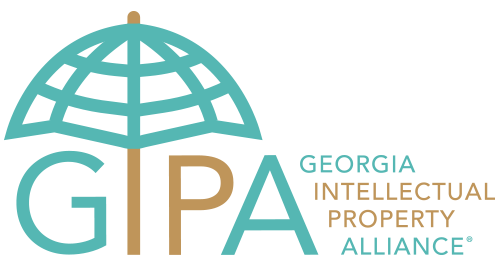National Academy of Inventors Inducts Seven Georgia Inventors into 2022 Fellows
The National Academy of Inventors (NAI) recently announced that seven inventors from the state of Georgia will be inducted into the 2022 class of NAI Fellows. The NAI Fellows Program was established to highlight academic inventors who have demonstrated a prolific spirit of innovation in creating or facilitating outstanding inventions that have made a tangible impact on quality of life, economic development and the welfare of society. Election to NAI Fellow status is the highest professional distinction accorded solely to academic inventors.
The 2022 class of NAI Fellows included 169 distinguished inventors from 110 different research universities, governmental and non-profit research institutions worldwide. The 2022 NAI Fellows from Georgia are from Emory University, Georgia Institute of Technology, and University of Georgia and include: George R. Painter, Raymond Joseph Dingledine, Adegboyega K. Oyelere, Zhong Lin Wang, Madhavan Swaminathan, Naola Ferguson-Noel, and Gerardus Josephus Boons.
The Georgia Intellectual Property Alliance congratulates the distinguished inventors and their respective research institutions for their outstanding contributions to society.
Dr. George R. Painter is a professor in the Department of Pharmacology and Chemical Biology at Emory University School of Medicine, CEO of Drug Innovation Ventures at Emory (DRIVE), and director of the Emory Institute for Drug Development. He is recognized as a world leader in the development of antiviral therapies and other life-saving work, including molnupiravir, which is now approved globally for the treatment of SARS-CoV-2 (COVID-19).
Dr. Raymond Joseph Dingledine is a professor in the Department of Pharmacology and Chemical Biology at Emory University School of Medicine, where his research involves the use of microarray and associated technologies to identify novel targets and pathways involved in the basic cellular and molecular mechanisms of epilepsy. Some of his most notable research accomplishments include the discovery that glycine is a coagonist of NMDA receptors and characterization of the topology of a glutamate receptor subunit.
Dr. Adegboyega K. Oyelere is a Professor in the School of Chemistry and Biochemistry at Georgia Institute of Technology. His research involves a unique blend of the tools of synthetic organic chemistry with biochemistry and molecular biology to delineate the chemical basis of molecular recognition events employed by biomolecules to drive important biological processes to understand the molecular basis of various human disease conditions, especially cancer, viral- and bacterial-infections; and to use the information gleaned from such studies to arrive at natural and synthetic ligands that can be deployed as potentially new therapeutic solutions for these conditions.
Dr. Zhong Lin Wang is the Hightower Chair in Materials Science and Engineering and Regents' Professor at Georgia Tech. His discovery and breakthroughs in developing nanogenerators established the principle and technological road map for harvesting mechanical energy from environment and biological systems for powering mobile sensors.
Dr. Madhavan Swaminathan is the John Pippin Chair in Electromagnetics in the School of Electrical and Computer Engineering (ECE) and Director of the 3D Systems Packaging Research Center (PRC) at Georgia Tech. He is internationally recognized for his research in the area of electronics packaging, with a particular emphasis on signaling, power delivery, RF, chip/package co-design, and system integration.
Dr. Naola Ferguson-Noel is a professor in the Department of Population Health and a member of the Poultry Diagnostic and Research Center at University of Georgia. Her research focuses on the differing ways to manage avian mycoplasmosis which is an infectious respiratory disease which affects poultry. She has employed surveillance techniques, diagnostics and new vaccines, generating new approaches to combatting mycoplasma strains including Mycoplasma gallisepticum (MG) and Mycoplasma synoviae (MS) in chickens and turkeys.
Dr. Gerardus Josephus Boons is a Distinguished Professor in Biochemical Sciences at University of Georgia. His research includes the development of new and better methods for synthesizing exceptionally complex molecules, the use of new methods in the synthesis and study of properties of complex carbohydrates of increasing size and complexity, the development of synthetic cancer and bacterial vaccines, the design and synthesis of glycosidase inhibitors, and the use of synthetic compounds for the study of innate immunity
The NAI Fellow program has 1,567 Fellows worldwide representing more than 300 prestigious universities and governmental and non-profit research institutes. Collectively, the Fellows hold more than 53,000 issued U.S. patents, which have generated over 13,000 licensed technologies, 3,200 companies and created more than 1 million jobs. In addition, over $3 trillion in revenue has been generated based on NAI Fellow discoveries.
The newest NAI Fellows from Georgia will be honored and presented their medals at the 12th Annual Meeting of the National Academy of Inventors on June 27th, 2023 in Washington, DC.

